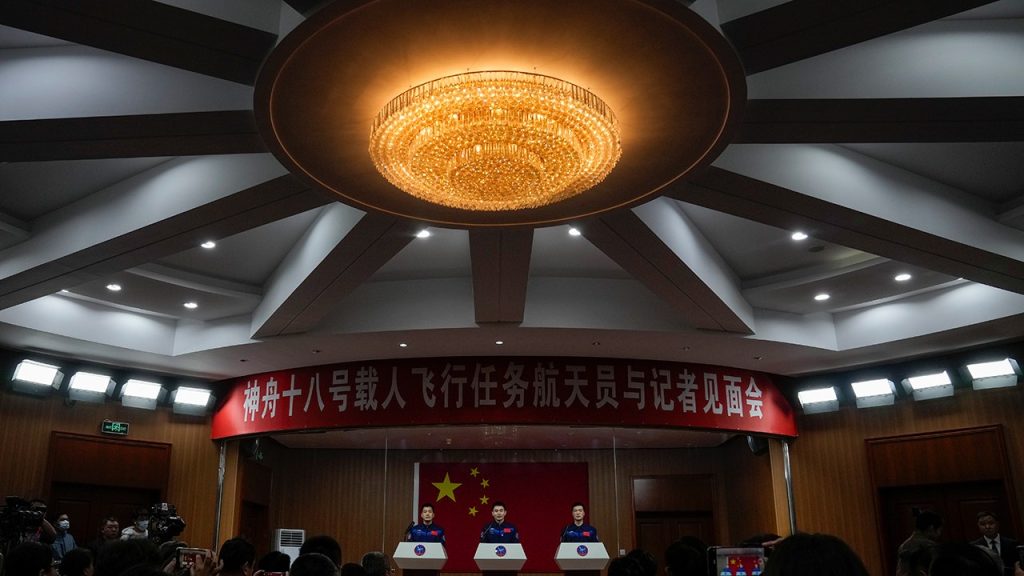China’s space agency is preparing to send a new crew to its space station on Thursday as part of its ambitious program to land people on the moon by 2030. The three-member crew of the Shenzhou-18 spacecraft will relieve the current team that has been manning China’s Tiangong space station since last October. China built its own space station after being excluded from the International Space Station due to concerns over the Chinese military’s involvement in the program. This year, the station is scheduled for two cargo spacecraft missions and two manned spaceflight missions.
The China Manned Space Agency (CMSA) introduced the three astronauts that will be part of the Shenzhou-18 mission: Commander Ye Guangfu, astronaut Li Cong, and astronaut Li Guangsu. The crew will spend about six months on the space station conducting scientific tests, installing space debris protection equipment, carrying out payload experiments, and engaging in science education activities. China is also working towards offering access to its space station to foreign astronauts and space tourists in the future, with plans to accelerate research and promotion in this area.
The crew is scheduled for lift-off from the Jiuquan Satellite Launch Center in China’s northwest. China conducted its first manned space mission in 2003 and has since made significant advancements in its space program, including bringing back lunar surface samples and landing a rover on the far side of the moon. While the U.S. space program is still believed to hold a significant edge over China in terms of spending, supply chains, and capabilities, China has made notable progress in various areas of space exploration.
The United States, a country that has previously put astronauts on the moon, aims to return to the lunar surface by the end of 2025 as part of a renewed commitment to crewed missions, with the help of private sector players like SpaceX and Blue Origin. Only four countries, including the U.S., Russia, China, and India, have successfully landed spacecraft on the moon. China’s current focus on space exploration highlights its growing ambitions in the field and its commitment to advancing its space capabilities, including future missions to the moon.


